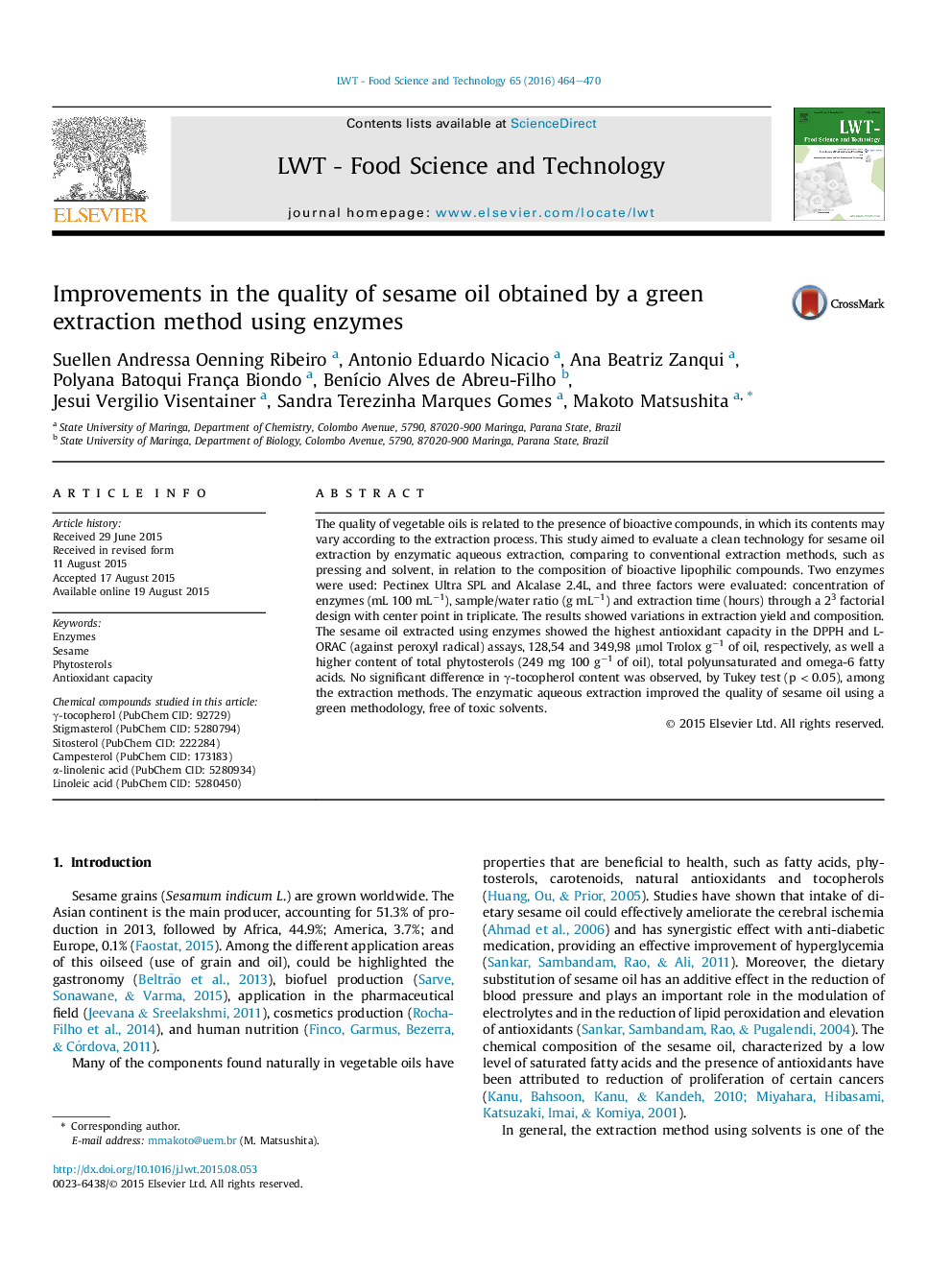| Article ID | Journal | Published Year | Pages | File Type |
|---|---|---|---|---|
| 6401596 | LWT - Food Science and Technology | 2016 | 7 Pages |
â¢Sesame oil is an excellent source of bioactive compounds.â¢Enzymatic aqueous extraction is a clean method to obtain sesame oil with high quality.â¢The sesame oil extracted using enzymes showed the highest antioxidant capacity.
The quality of vegetable oils is related to the presence of bioactive compounds, in which its contents may vary according to the extraction process. This study aimed to evaluate a clean technology for sesame oil extraction by enzymatic aqueous extraction, comparing to conventional extraction methods, such as pressing and solvent, in relation to the composition of bioactive lipophilic compounds. Two enzymes were used: Pectinex Ultra SPL and Alcalase 2.4L, and three factors were evaluated: concentration of enzymes (mL 100 mLâ1), sample/water ratio (g mLâ1) and extraction time (hours) through a 23 factorial design with center point in triplicate. The results showed variations in extraction yield and composition. The sesame oil extracted using enzymes showed the highest antioxidant capacity in the DPPH and L-ORAC (against peroxyl radical) assays, 128,54 and 349,98 μmol Trolox gâ1 of oil, respectively, as well a higher content of total phytosterols (249 mg 100 gâ1 of oil), total polyunsaturated and omega-6 fatty acids. No significant difference in γ-tocopherol content was observed, by Tukey test (p < 0.05), among the extraction methods. The enzymatic aqueous extraction improved the quality of sesame oil using a green methodology, free of toxic solvents.
